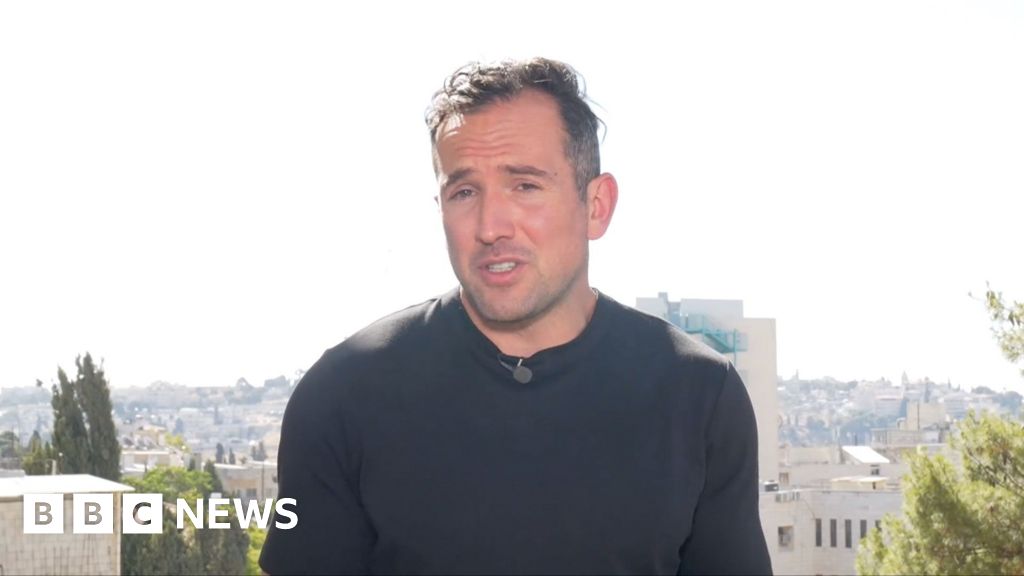ARTICLE AD BOX
By Jessica Parker
BBC Brussels correspondent
Delphine is one of 65,000 civil servants earning the "right to disconnect"
Although she once hoped to be professional chef, in the end Delphine opted to be a civil servant.
She still loves to make time to cook though: "It's one of my passions!"
The 36-year-old is preparing dinner for her friends, Catherine and Roch. It's Hachis Parmentier, a dish of mince and mashed potato - sometimes likened to a shepherd's pie.
As she stirs the onions, she tells me she welcomes the fact that many civil servants in Belgium are getting the right to disconnect.
"Especially for young people it's not always clear when they have to be available or not.
Delphine says she will be able to pursue he passion for cooking
"Because when you begin a new job, you want to be perfect and you think: 'If I don't answer that email at 10 o'clock at night maybe my boss will not like it.'
"So now I think it's going to be a cultural change."
From 1 February, 65,000 government civil servants cannot be contacted outside normal working hours.
There are exceptions - perhaps by agreement or if something can't wait. And it doesn't mean there won't be staff on call.
A second principle is that workers shouldn't be disadvantaged by not answering the phone or picking up emails out of hours.
Public Administration Minister Petra De Sutter believes the change will boost efficiency.
She says the line between work and personal life has become increasingly blurred during the pandemic, with so many working from home.
Image source, AFP
Image caption,Public Administration Minister Petra De Sutter says the change will boost efficiency
Without the right to disconnect, she says, "the result will be stress and burnout and this is the real disease of today".
This rule change was relatively simple to put in place as it only applies to federal civil servants.
A plan to extend the practice to the private sector is expected to meet more resistance.
"The right to disconnect should not be expanded towards the private sector," says Eric Laureys from Voka, the Flemish Network of Enterprises.
He says it will "undo" progress seen during the pandemic towards more flexible working.
"It would be a major sign of distrust towards the ability of employers to organise work."
Len Shackleton, a research fellow at the Institute of Economic Affairs think tank and professor of economics at the University of Buckingham, agrees it undermines flexibility.
"Restrictions on contacting workers outside fixed hours is just a further dose of regulation."
Petra De Sutter insists the measure won't be a block on flexible working, when that is what employees want.
"But on the other hand, we need to protect basic rights of workers," she says.
Delphine laughs a little when I ask whether the change might feed into the notion of "clock-watching" civil servants.
She says it's an old cliché and that the workload has, over the years, increased.
"I think we do more with less people, usually. I don't think we are work-shy."
Other countries have brought in these kinds of provisions, most notably France.
In Belgium the next stage of the debate looks likely to be whether a greater proportion of workers should also gain the right to disconnect.
You might also be interested in:
Four-day week: will we all be working one in the future?

 3 years ago
44
3 years ago
44








 English (US) ·
English (US) ·